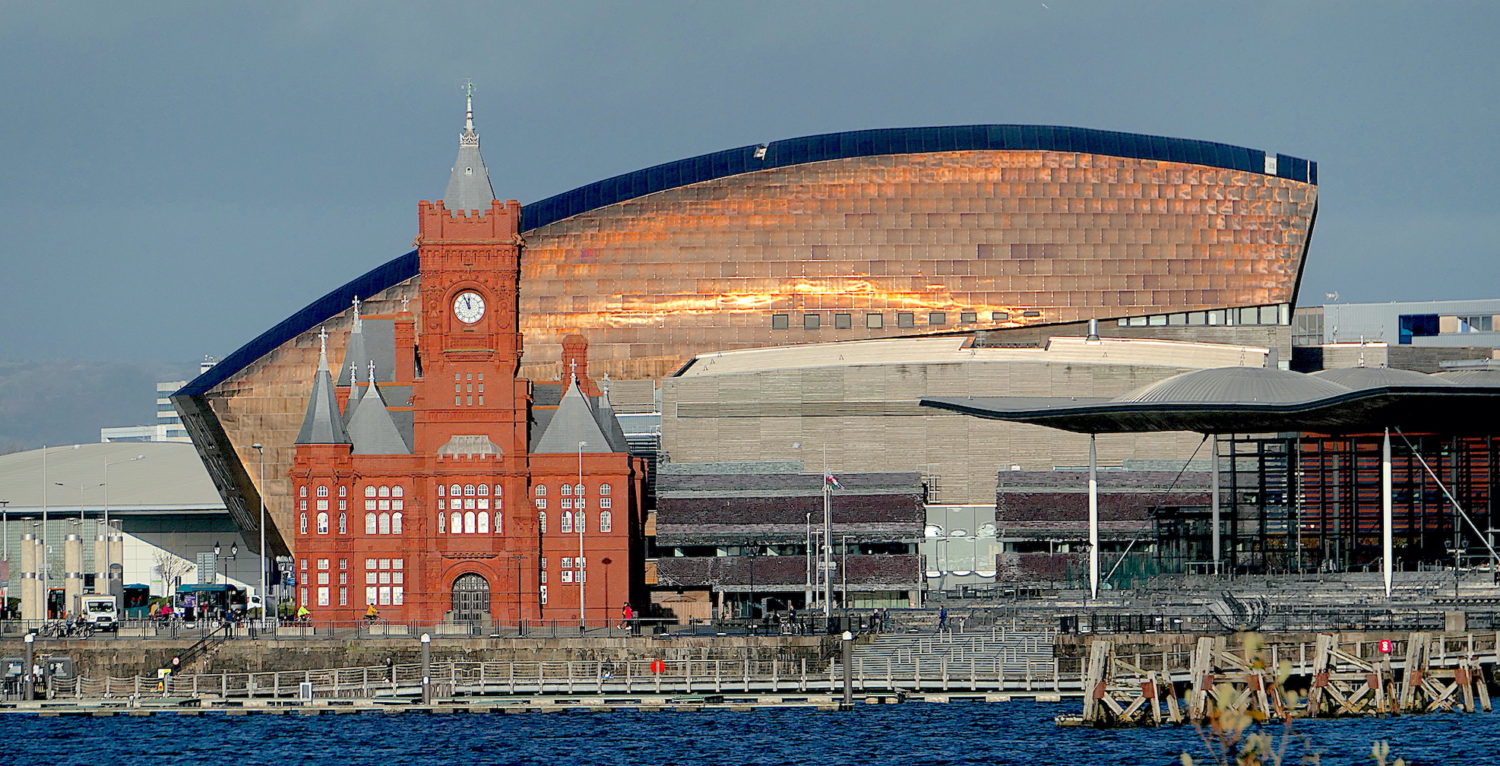Turning tides
It is almost quarter of a century since the people of Wales voted yes to devolution. Welsh first minister Mark Drakeford looks at what has happened since – and suggests there are some stark choices ahead for the Union
In 2010, the Conservative party returned to power in Westminster for the first time since the National Assembly was created in 1999. And, in 2011, a second referendum provided emphatic endorsement of greater powers for the assembly, marking the point at which devolution was fully embraced in all parts of Wales. These key moments have helped to shape the short history of devolution in Wales.
The first 10 years
In the first decade after devolution, a Labour government in Wales faced a Labour government in Westminster. For all the occasional tensions, the relationship was one of people who knew each other, treated each other with respect and belonged to the same tribe.
Serious debates about Wales’ place in the Union were very rarely part of mainstream political debate because the UK Labour government remained attentive to the case which made the UK worthwhile: it delivered devolution, it achieved a peace process in Northern Ireland and it shared the proceeds of economic growth in all parts of the UK.
The politics of the National Assembly too were stable. The four political parties elected in 1999 were the same four parties elected in 2011, in more-or-less the same proportions. All parties were agreed on using the assembly to secure a strong voice for Wales in Europe.
Buoyed by year-on-year real terms growth in its budget, Welsh Labour pursued a distinctively different policy agenda from UK Labour, summed up by the approach set out by Rhodri Morgan – First Minister for the first decade of devolution – in his ‘clear red water’ speech.
The Welsh Conservatives used the first decade to re-establish and rehabilitate themselves in the minds of a Welsh public which had declined to return a single Tory MP at the general elections in 1997 and 2001. The Liberal Democrats and Plaid Cymru demonstrated an early adjustment to political life under proportional representation by sharing power in Labour-led administrations in 2000–2003 (Lib Dem) and 2007–2011 (Plaid Cymru).
But the second decade has been, in many respects, a reverse of the first.
Labour governments in Wales have found themselves faced with successive Conservative governments at Westminster.
Dealing with the Tories
In constitutional terms, the David Cameron years were relatively benign, as far as the assembly was concerned. The prime minister took little direct interest in the future of the United Kingdom as an entity – and was to pay the price for this neglect in his conduct of Scottish affairs.
In Wales, devolved powers were strengthened in the aftermath of the Scottish referendum. But the real long-term damage was to be found in the flawed and failed policies of austerity, which were the hallmark of the Cameron-Osborne era and which have done so much to accelerate inequality, undermine public services and damage the case for the Union.
Theresa May’s premiership was dominated entirely by Brexit and by internal warfare in the Conservative party. Whether because of the nature of the Brexit negotiations, the rise of Scottish nationalism, her own perilous parliamentary position or because of a genuinely different view of the Union, May paid the most attention to the devolved nature of the United Kingdom.
In the weeks before her departure from Number 10 she delivered a lecture in Edinburgh which described the UK as a ‘voluntary association of four nations’ – a genuinely radical conceptualisation for a Conservative leader.
All that changed, of course, in 2019 with the election of the first majority Conservative government since devolution in 1999. The Johnson administration has been the first to take a straightforwardly hostile approach to devolution, telling a group of his own backbenchers that it had been Tony Blair’s ‘greatest mistake’.
While the prime minister’s relationship with the truth is tangential at best, my own experience suggests this remark betrays the thinking behind much of what has happened since December 2019.
Today’s Senedd finds itself under constant attack from a UK government forever on the look-out for powers and money to take away from the devolved parliaments. The Welsh budget will be more than £1bn smaller that it would have been had we remained in the European Union because of Treasury gerrymandering.
The Internal Market Act is the single most destructive blow to the future of the United Kingdom ever struck by any government in the modern era.
Devolution confidence
As everyone involved will always remember, the Welsh devolution referendum in 1997 was won by a whisker. In itself, that was a miracle of Lazarus proportions, given the emphatic rejection of the same proposition just 20 years earlier.
The tentative nature of Wales’ embrace of the opportunity to become responsible for at least a part of its own affairs had deep roots.
In the early years of devolution, I would regularly share a platform with the distinguished Canadian academic Scott Greer, who was then working in London on comparative health policy across the newly devolved United Kingdom. He would tell a story about giving a lecture on successive days: in Edinburgh on Monday and Cardiff on Tuesday. The lecture’s title was Scotland is Good, but Wales is Better. In neither venue, he reported, was he believed. Scotland could not believe that it was not best – but a Welsh audience could not imagine itself in that position either.
My predecessor Rhodri Morgan sometimes used to say that Welsh people are ‘pathologically modest’. The history of devolution has been about retaining the modesty, while eliminating the pathology. The 2011 referendum is the moment when that tide turned.
Today, devolved government is firmly entrenched in the preferences of Welsh citizens. In the May 2021 Senedd election, the Abolish the Assembly party – despite being treated by broadcasters as being on a par with the other mainstream political parties – did not win a single constituency or regional list seat.
The conduct of government during the pandemic has secured and sustained the support of the majority of the Welsh population, in sharp contrast to that of the UK administration.
What now for Labour and devolution?
This is where the two themes of this article – and the last decade of devolution – come together.
There is a powerful case to be made for the Union of the United Kingdom, but it is a Labour case – with arguments for social solidarity, collective defence against risk and powerful redistribution of the rewards which come from acting together.
Far from wishing to settle back into the ‘unitary state’ of the prime minister’s imagination, the hostility of his government drives more people, especially young people, to wonder whether Wales would not be better off without it.
I want the confidence which lies behind such questioning to be directed to the making of a new Union, not simply the rejection of the way things are today. That new Union would see sovereignty dispersed among the four legislatures of the United Kingdom, and a voluntary coming together for those purposes which are best pursued together. It would entrench devolution beyond the depredations of a hostile Westminster government of the sort we see today. And it would rest, not on the politics of fear or disrespect, but on the positive case for a Union in which each component nation has the confidence to play its part.
It is the future of the Union itself which is at play in the third decade of devolution, and the choices are stark. But once we are freed from the shackles of those who call themselves ‘unionists’ there is a future to which every part of the Union would wish to belong.
Image credit: Wikimedia/Richard Szwejkowski

